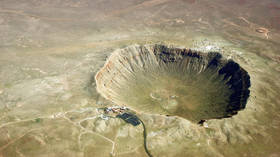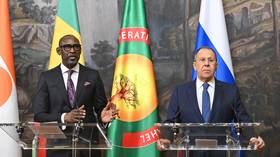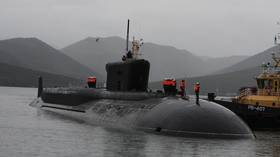We must learn how to ‘slow down and speed up asteroids’ to avoid fate of dinosaurs, Apollo 9 astronaut tells RT

Humanity can very easily learn how to save lives when a destructive asteroid appears – and not by blowing it up or changing its course, the pilot of the 1969 Apollo 9 mission, Rusty Schweickart, has told RT.
“[The asteroids] go around the Sun the same way that the Earth does, but their paths occasionally cross the orbit of the Earth,” Schweickart told RT’s Sophie Shevardnadze.
“And, sooner or later, the Earth and the asteroid will be in the intersection at the same time. It’s just like two cars.”
The famed astronaut co-founded the non-profit B612 Foundation, which advocates for building a global asteroid defense shield. He believes humanity should run a comprehensive asteroid database and focus on creating technology able to spot the incoming cosmic bodies.
The database will also help to calculate their trajectory years before they would be detected as being on collision course with our planet, Schweickart said.
Also on rt.com Are there UV-munching bugs thriving in Venus atmosphere? Russian-US joint mission will find outHe explained that the next step to deal with the asteroid would be to “to slow it down or speed it up a little bit, using space technology, so that it arrives slightly ahead of the Earth or behind the Earth.”
That’s a deflection. We don’t have to blow it up. We don’t have to change its orbit. We just change its arrival time at that intercept.
The astronaut is confident that the nations of the world can access such technology sometime in the future, if they choose to invest enough money and effort. Impact events are relatively rare but the stakes are still high, he stressed, recalling the Chelyabinsk meteor, which fell from the sky in broad daylight Russia in 2013 and, by sheer luck, didn’t kill anyone.
“There have been mass extinctions in the past. And the impact that wiped out the dinosaurs 64 million years ago wiped out 75 percent of all life that existed,” Schweickart warned.
“So, yes, a city can be destroyed, a continent can be destroyed, and life on the planet can be destroyed. Civilization is very fragile, frankly. So, it doesn’t take much to destroy civilization.”
Watch the full interview here:
Think your friends would be interested? Share this story!















